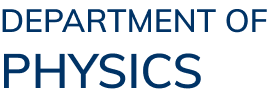Abstract
The paradigm of cosmic inflation not only provides a natural origin for a flat, causal and relic-free early universe, but also serves as a unique smoking gun towards particle physics at extremely high energy scales. During inflation, massive particles are spontaneously produced by gravity itself, and leave distinctive signatures on the non-Gaussian correlators of primordial fluctuations. Such a Cosmological Collider (CC) operates at an energy scale as high as 1013 GeV, far above any particle colliders envisaged in any foreseeable future. Yet it remains not high enough for probing heavy particles with mass much greater than the Hubble scale, because the CC signal strength is exponentially suppressed by the particle mass. Such a Boltzmann suppression is arguably the biggest challenge of the CC.
In this thesis, however, I will demonstrate that the rolling inflaton background can naturally introduce a chemical potential for spinning particles. This chemical potential hugely enhances particle production by alleviating its effective mass, leading to amplified CC signals. I will then generalize the chemical potential to the case of massive spin-2 and discuss its interesting phenomenology, including greatly boosted CC signal strength and parity-violation in the primordial non-Gaussianities.
